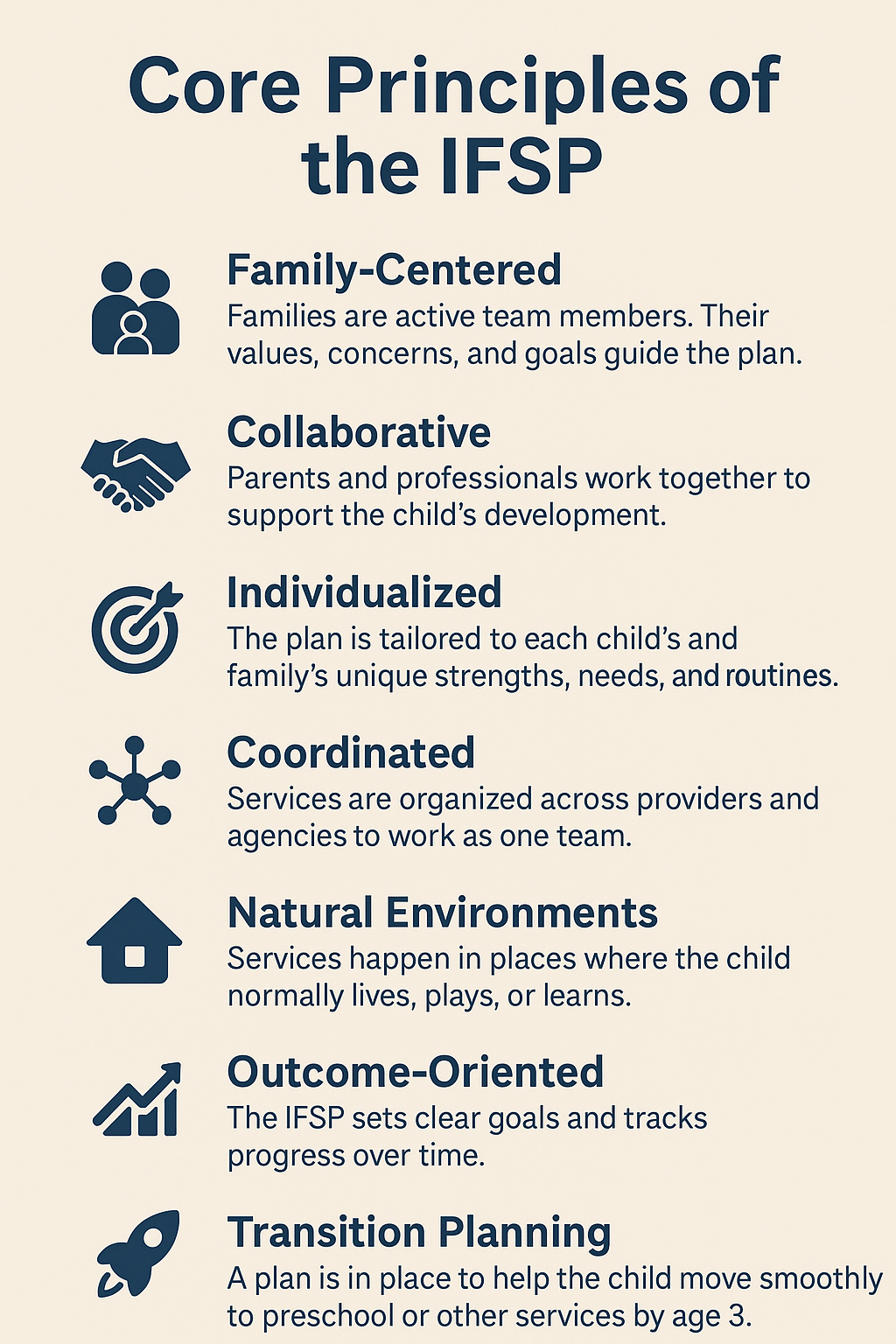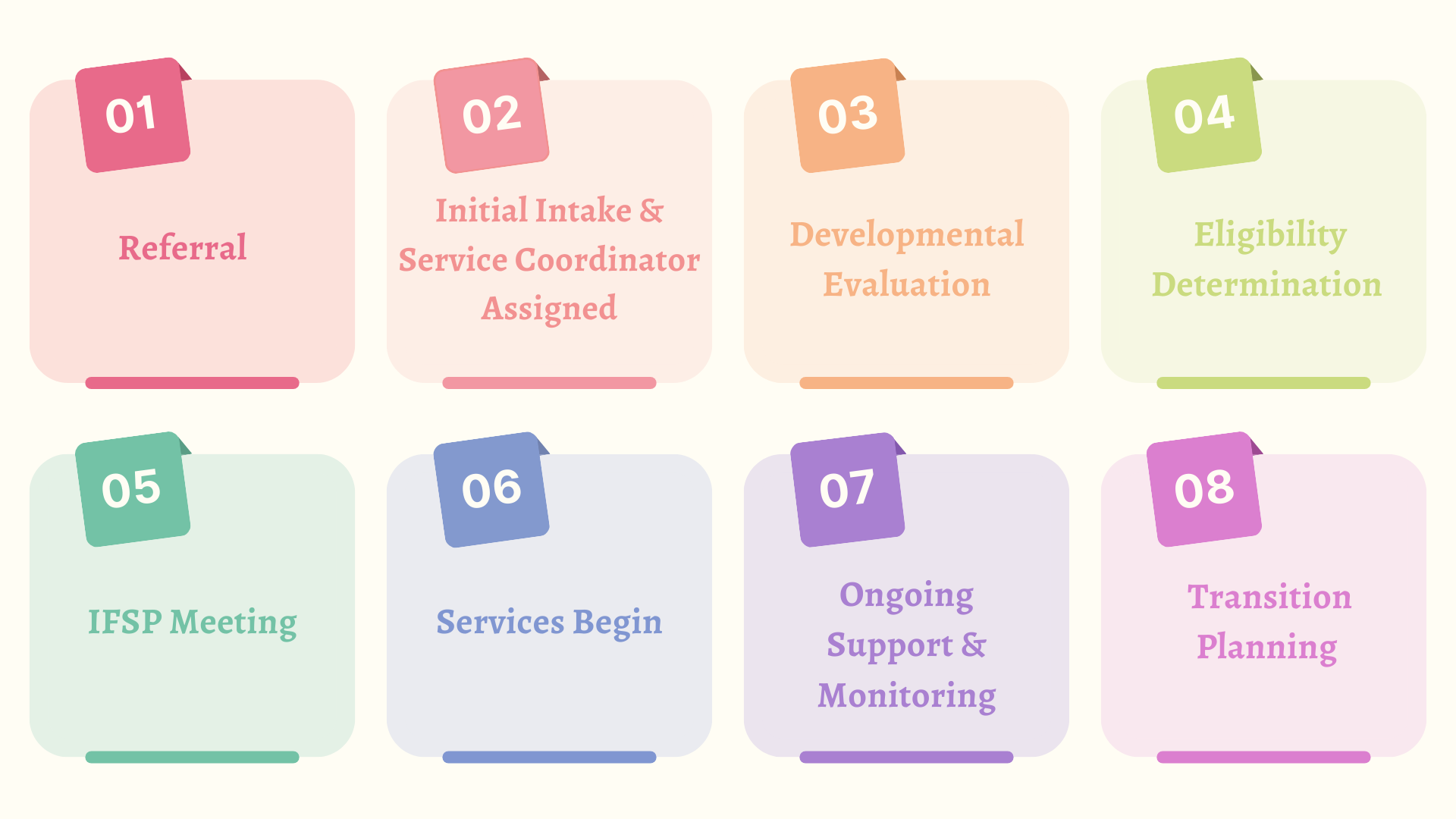Individualized Family Service Plan (IFSP-EI)
What is an Individualized Family Service Plan (IFSP)?
The Individualized Family Service Plan (IFSP) is a critical component of the Early Intervention (EI) system under Part C of the Individuals with Disabilities Education Act (IDEA). The IFSP is a process that involves evaluating the child’s developmental needs. It is to establish goals, develop intervention plans, and review them regularly. It is designed to support infants and toddlers (birth to age 3) who have developmental delays or disabilities, as well as their families.

The Legal Framework of the IFSP in Early Intervention
The Individualized Family Service Plan (IFSP) is legally mandated under
Part C of the Individuals with Disabilities Education Act (IDEA) governs early intervention services for infants and toddlers from birth to age three who have developmental delays or disabilities. This federal law, originally enacted in 1975 and most recently reauthorized in 2004, ensures that children and their families receive coordinated, family-centered support.
The U.S. Department of Education enforces the law through federal regulations found in 34 CFR Part 303, which detail the requirements for eligibility determination, timely evaluations, IFSP development within 45 days of referral, and periodic reviews. These regulations also define what must be included in an IFSP, such as a child’s present developmental levels, measurable outcomes, needed services, family priorities (voluntarily shared), the service coordinator’s name, and a transition plan for preschool or other appropriate services by the child’s third birthday.
Each state is responsible for implementing IDEA Part C through its early intervention system, in line with federal guidelines. For instance, Virginia’s Infant & Toddler Connection (ITC) Virginia’s Infant & Toddler Connection (ITC) ensures services meet both federal and state standards. While states can exceed federal requirements, they must meet the minimum set by IDEA. Families are also protected by procedural safeguards, including informed consent, written notice, record confidentiality, and access to dispute resolution. This legal framework makes the IFSP process collaborative, personalized, transparent, and enforceable.
THE PROCESS
Step 1: Referral
Anyone—your pediatrician, child care provider, or even you—can refer your child to Early Intervention (EI) if there are concerns about development.
Step 2: Initial Intake
A
Service Coordinator will contact you to explain the EI process, gather information, and schedule evaluations.
Step 3: Developmental Evaluation
A team of professionals will evaluate your child’s development in areas such as communication, motor skills, social-emotional growth, and more.
Step 4: Eligibility Determination
After the evaluation, the team will let you know if your child
qualifies for Early Intervention services under Part C of IDEA.

Step 5: IFSP Meeting
You and the team (including your Service Coordinator and professionals) will meet to:
- Review your child’s developmental strengths and needs
- Share your family’s goals and priorities
- Set measurable goals (called outcomes)
- Decide which services your child and family will receive
**Your voice is essential—share what matters most to your family.
Step 6: Services Begin
Services (such as speech therapy, occupational therapy, or developmental services) will begin in your home or other
natural environments.
Step 7: Ongoing Support & Monitoring
Your Service Coordinator will check in regularly to make sure services are working and support you with any new concerns.
**The IFSP must be reviewed at least every 6 months and updated at least once a year.
Step 8: Transition Planning
By the time your child turns
2½, the team will start planning the transition to preschool or other appropriate services.
Tips for Families
- Ask questions. You are an equal partner in the process.
- Take notes. Bring a notebook or folder to meetings.
- Speak up. Your insights into your child are valuable.
- Stay involved. Consistent communication helps ensure the plan meets your family’s needs.
